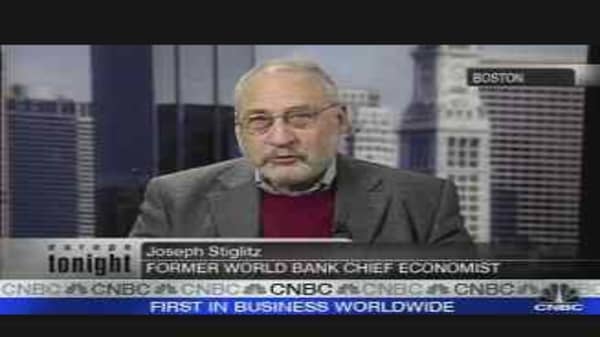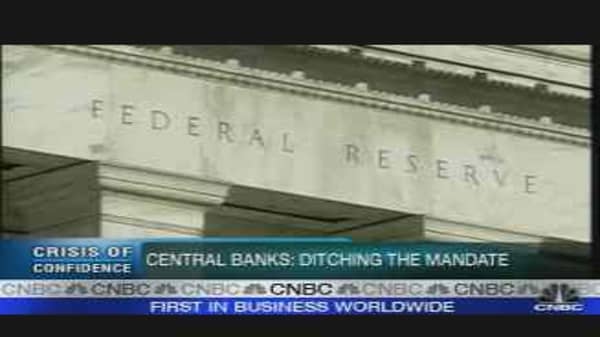Wall Street banks are the first to be blamed for the credit crunch. Central banks come a close second, but as the Federal Reserve's image is suffering, the European Central Bank looks as solid as a rock.
Many analysts and traders in the U.S. have cheered the Fed's rapid rate cuts and widening of collateral it accepts in exchange for liquidity for cash-strapped banks, saying that without them the crisis would be worse. The bailout of Bear Stearns also had its fans.
But the voices of those who accuse the Fed of debasing the currency and creating moral hazard are stronger and stronger.
Former World Bank chief economist Joseph Stiglitz, eternal bear Marc Faber and renowned investor Jim Rogers accused the Fed of being the source for the global credit turmoil that is crippling financial markets.
Asked what he would do if he were in Federal Reserve Chairman Ben Bernanke’s shoes, Rogers said: “I would abolish the Federal Reserve and I would resign.”




